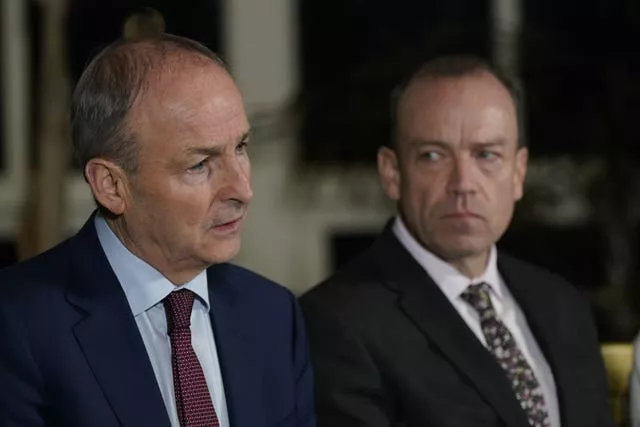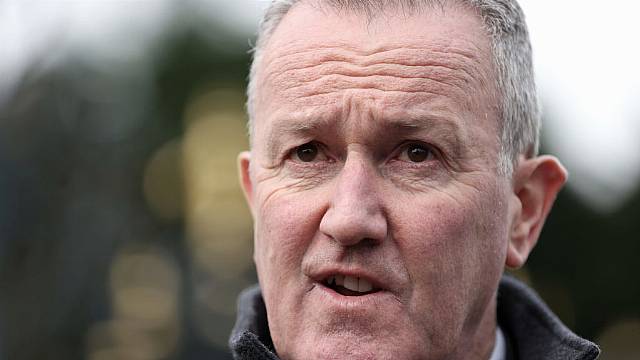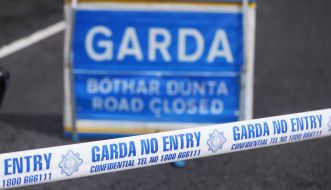The UK government has been accused of “fighting others” on legacy while facing almost universal opposition to its own new legislation on Northern Ireland’s troubled past.
Sinn Féin MLA Conor Murphy criticised the UK after Secretary of State Chris Heaton-Harris wrote to Minister for foreign affairs Micheál Martin questioning the move by Ireland to challenge the UK’s contentious legacy laws in the European Court of Human Rights.
Mr Heaton-Harris also challenged Ireland to set out its own record on tackling legacy issues.
DUP leader Sir Jeffrey Donaldson backed the challenge to the Irish Government on its record, while maintaining his party’s opposition to the Legacy Act.

He said that while the UK has initiated a public inquiry into the 1998 Omagh bomb, despite a court ruling saying the Irish Government should do likewise, it has not.
The British ambassador to Ireland, Paul Johnston issued the letter on Sunday evening.
In it, Mr Heaton-Harris again challenges Mr Martin to list the number of prosecutions mounted in the Irish state since 1998 related to Troubles incidents.
Aspects of the recently passed UK laws include a limited form of immunity from prosecution for Troubles-related offences for those who co-operate with the new Independent Commission for Reconciliation and Information Recovery (ICRIR).
The Northern Ireland Troubles (Legacy and Reconciliation) Act 2023 will also halt future civil cases and legacy inquests.
The UK government’s laws are opposed by many victims’ groups in Northern Ireland and all the main Stormont parties.
Announcing the interstate case in December, Taoiseach Leo Varadkar said his administration was left with “no option” but to legally challenge the UK Government over the Legacy Act.
He said the “strong” legal advice was that the UK Legacy Act breached the UN Convention on Human Rights.
Tánaiste Mr Martin said they were taking the case reluctantly after having spent time trying to change the UK government’s mind.
The Northern Ireland Office (NIO) confirmed to the PA news agency that a letter had been issued formally registering “profound regret” at the interstate case.
“The Secretary of State, in his letter, repeats his call for the Irish Government to clarify the number of criminal prosecutions brought in Ireland since 1998 relating to Troubles-related cases, and presses the Irish Government more widely to answer questions regarding its own record on tackling legacy issues in its own jurisdiction,” the NIO said in a statement.
The letter criticises the timing of the Irish decision, describing it as a “delicate time” in Northern Ireland amid the efforts to restore powersharing at Stormont.
The NIO added: “The decision also comes before the Independent Commission for Reconciliation and Information Recovery, led by Sir Declan Morgan as chief commissioner, is fully established and able to demonstrate its ability to discharge the UK’s international obligations.
“The UK government reasserts its particular disappointment that the Irish Government has taken this course of action without, to date, any engagement with the ICRIR to understand better how it intends to implement the legislation and deliver for victims and survivors.”
Mr Murphy accused the UK government of “fighting others” on legacy while introducing new legislation on Northern Ireland’s troubled past which is almost universally opposed.
He claimed the UK government’s approach to legacy has “been about satisfying its own electoral interests” and “motivated by its own backbenchers and their desire to protect British Crown forces who were involved in all sorts of activities here over the course of the conflict”.

“The idea that they would continue to fight and criticise others when they are in the face of all opposition from all of the parties here, all of the victims’ organisations and from the Irish government, doesn’t surprise me… They were never intent on satisfying the needs of victims here, they were intent on satisfying the requirements of their own backbenchers in relation to protection of their own personnel,” he told the BBC.
“The Irish government is quite right to criticise them and I don’t think they were left with any alternative but to take a case.”
However, Sir Jeffrey said the Government's “double standards” on legacy “need to be challenged”.
“I agree with the Secretary of State that the double standards of the Irish government on this issue need to be challenged, and, whilst we opposed what the UK government are doing and continue to oppose this amnesty that they brought forward in their legacy proposals, we see the same approach taken by the Irish Government, indeed over many years, and, as the Secretary of State has pointed out, there have been no prosecutions by the Irish Government, no attempt to prosecute those who were involved in terrorist activity in their jurisdiction,” he said.







